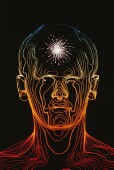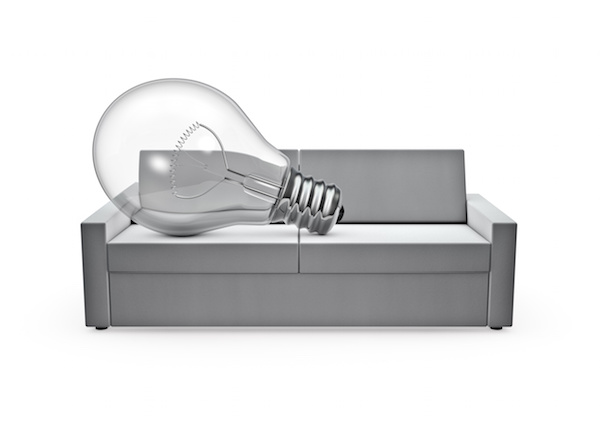
THURSDAY, Sept. 16 (HealthDay News) — Why is it that some people are much better at turning their thoughts inward and reflecting on their decisions than others? The answer, neuroscientists say, may come down partly to differences in brain structure.
In a study published in the Sept. 17 issue of Science, researchers report that people who are good at introspection, or “thinking about thinking,” have a greater volume of gray matter in the area of the brain that lies directly behind the eyes.
“What this study does is allow us to have a better understanding of the biology of the brain that is linked to quite a high level of thinking, which is our ability to reflect on our thoughts and behaviors,” said one of the study’s lead authors, Steve Fleming, a doctoral candidate at University College London’s Wellcome Trust Centre for Neuroimaging.
Fleming noted that introspection isn’t the same as knowing the correct answer. “For example, if you’re a contestant on a game show and you’re uncertain about your answer, you might choose to ask the audience for help. That kind of introspective knowledge is different from your basic ability to make the right decision.”
For the study, Fleming and his colleagues gave 32 healthy adults a computer test that was designed to measure how well each participant did at a task, as well as how confident that person was about his or her decisions during the task.
Each person was shown two screens, both of which contained six patterned patches. One of the screens, however, contained a single patch that was brighter than all the rest. The researchers asked the participants to identify which screen contained the brighter patch, and then to rate how confident they felt about their final answers. After the experiment, participants’ brains were scanned using magnetic resonance imaging (MRI).
The researchers’ theory was that individuals who were good at introspection would feel confident after choosing the right answer, and less so if they were incorrect. By tracking how accurately the participants were able to rate their own decision-making, researchers were able to gauge the participants’ capacity for introspection.
Reviewing the results, Fleming’s team found the capacity for introspection varied widely. They also discovered that a person’s meta-cognitive, or “higher-thinking” introspective abilities, were significantly associated with the amount of gray matter in the right anterior prefrontal cortex of the brain and the structure of neighboring white matter.
To control for differences in the participants’ ability to choose the correct answer, the researchers programmed the computer to give harder tests to the better observers and easier tests to the poorer observers.
In an editorial accompanying the study, the authors said that designing the test so that all of the participants were never completely sure if their answer was correct was a key advance.
“Previously, there’s been some debate as to whether rating perceptual confidence genuinely involved metacognition,” or whether people just focused on sensory input, said editorial co-author Hakwan Lau, an assistant professor of psychology at Columbia University in New York City. “So in a sense, by finding out which brain structures may be important for [introspection], they have contributed to clarifying the mechanisms underlying this sort of behavior.”
Another expert agreed that the study findings were novel and intriguing. “What’s interesting about this study is that such a high level of thought behavior can be correlated to a specific part of the brain,” said Paul Sanberg, distinguished professor of neurosurgery and director of the University of South Florida Center of Excellence for Aging and Brain Repair in Tampa.
“The reason this study is important is that you need to get a baseline of how the brain functions before you can begin to think about treatments that can help people enhance these kinds of behaviors,” Sanberg said.
The association the researchers found doesn’t necessarily mean that people with more gray matter in the prefrontal cortex will be more introspective than others, according to a statement accompanying the study release.
Fleming said that an unanswered question is whether people are born with these brain differences that allow them to be more introspective, or whether their specific thoughts and behaviors cause them to become better at it. “What we need to do is assess whether we can train people to be more introspective, and if so, does that lead to changes in these structures of the brain,” he said.
He added that future studies are needed to look at whether the findings hold up for other kinds of introspective behavior.
More information
The Canadian Institutes of Health Research has more about the brain.

